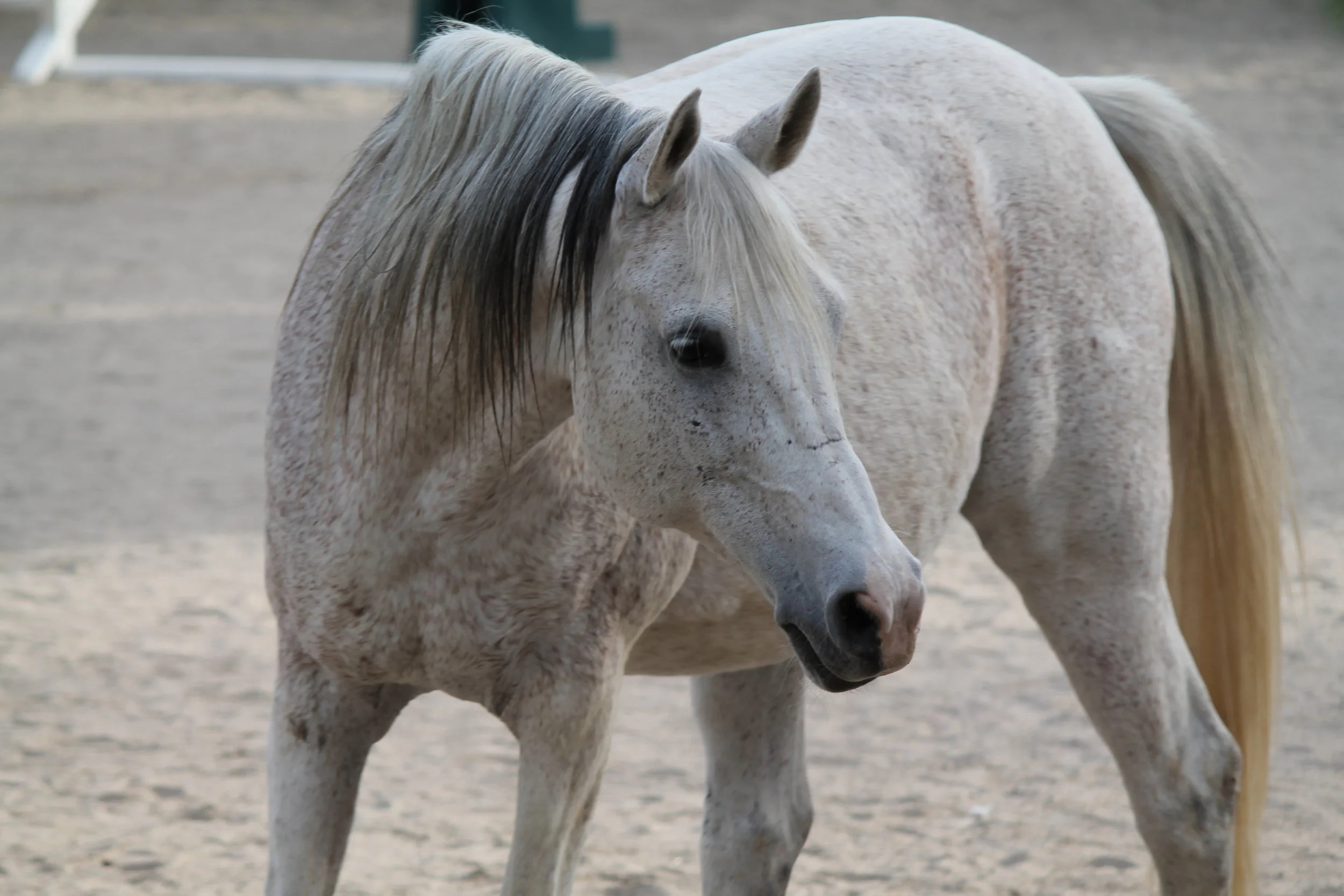One of the trainers that I ride with has spent the last several months transitioning all of her horses to bitless. I have mostly made this transition with her (my mare goes half and half, partially due to the fact that I can’t show bitless and partially due to the fact that I feel she goes better bitted) and it has totally opened my eyes to bitless riding.
My biggest point to stress: bitless DOES NOT equal dangerous and bitted DOES NOT equal controlled. Having a bit does not ensure you control, and riding in some type of bitless bridle does not mean that your horse is going to go running away from you. If your horse is properly trained off the seat, you do not need a crescent noseband with a twisted wire full cheek.
The next excuse that is going to come flying up is that these are big, high performance animals who cannot be expected to respond to such subtle things when they’re so amped up. False. If Kelly McKnight can ride a grand prix course in a halter, then no one gets to complain about safety issues. Not every horse should go bitless, not every horse wants to. That is not what this whole thing is about. Legalizing showing bitless will not cause a craze of amateur riders showing their 1.20m jumpers in Dr. Cook’s bridles if they are not at that point in their training. It will just allow the riders who have taken the time to carefully finesse their horses into responding to a variety of aids to show their horses is in what they believe is a more comfortable set up. There aren’t even only incredible exceptions to your danger theory - there are some of course, Kelly McKnight, Alizee Froment, Isabell Werth (Satchmo has schooled in a halter) - but ordinary ones as well. My mare has a scary spook, and I find it easier to control bitless than I do bitted. When she spooks, scoots, and bucks, my first reaction is hands - pull the head up and don’t get bucked off. With the bit, a piece of metal catches her in the mouth and hurts, now she’s really insulted. With the bitless, she responds calmer and faster. We actually got a spook of hers on video:
We were filming for Dr. Cooks, and Dr. Cook actually responded saying,
“…I was fascinated to see how, at the end of the spook, she licked her lips. Flight mode to vegetative mode in the time it took her to move from one side of the arena to the other. Sympathetic nervous system on full alert to parasympathetic relaxation. Wonderful.”
I have seen my trainer’s horse leap up and down and spin in circles spooking at a trashcan rolling, and he comes back to her in a sidepull. It’s not dangerous, period. I understand that some of these will be big, high energy horses. It is up to the rider what position they want to put them, and their horse in.
This whole bitless is dangerous thing is exhausting. Because it’s not true. But people have got it so engrained that they don’t even want to consider that a horse could possibly go better bitless. Why not at least have the option? It’s such a silly debate. If it does not directly affect you, you should not be bothered. If you are so worried that your horse will be unable to control bitless, maybe you don’t try it right away. But don’t let that stop other people from doing what is best for their horse. Now that we’ve gotten that out of the way, let’s move on to aids.
We have more than just our hands and our legs, we have each individual part of our leg, we have our seatbones, we have the way that we shift our weight. In a bitless bridle we still have our hands, they just aren’t connected to the horses’ mouth. Collection and connection are still entirely possible. I can now get my horse to engage and collect by the way I rub my heel, while doing nothing with my hands. They’re simply there. More talented and dedicated riders like Alizee Froment can achieve collection and engagement in nothing more than a neck rope. Every upper level rider and clinician will tell you that wiggling your fingers is an improper way to get your horse in a frame, that you’re achieving nothing more than a false frame. So why even use the bit? It’s definitely a longer route, but you really learn to ride. It’s something each rider should experiment with, and the best way to get it out there is for the FEI to legalize it in competition.
Once people move past the “bitless is dangerous” mindset, it will really be a nice change in the equestrian community. Not everyone wants to go bitless, and that’s okay. But the less we can see of crank noseband, flash, bit, and hackamore, with a five point running martingale, the better.

